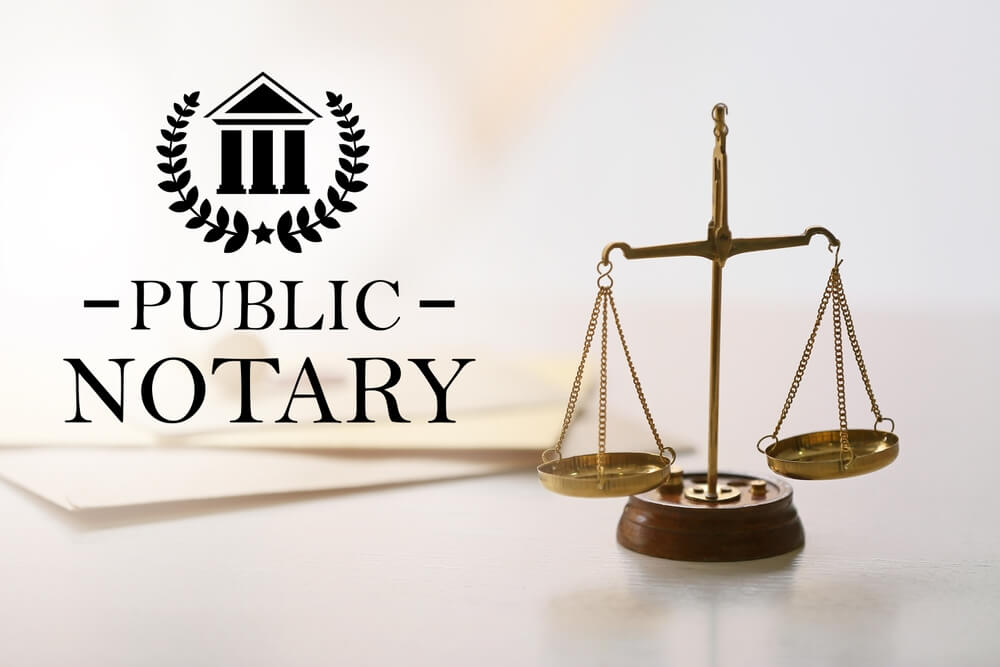Notary Public: Your Trusted Witness and Document Authenticator
Notary Public: Your Trusted Witness and Document Authenticator
Blog Article
Demystifying Notarial Work: Simplifying the Function and Value of Notaries
Their function, usually shrouded in mystery for numerous, carries significant weight in guaranteeing the legitimacy and honesty of critical records. By untangling the intricacies bordering notarial methods and shedding light on the value of their acts, a more clear understanding emerges of the important role notaries play in promoting the textile of legal and lawful arrangements.
The History of Notarial Work
The history of notarial work days back to old human beings, where scribes played a critical duty in recording vital information and validating files. This led to the advancement of notaries, individuals selected by the state to act as neutral witnesses in lawful issues.
Throughout the Center Ages, notaries obtained prestige in Europe, with their features broadening to consist of preparing lawful papers, certifying trademarks, and protecting records. The surge of international trade even more highlighted the importance of notarial work in validating agreements and agreements throughout boundaries.
In the modern period, notaries continue to play an essential function in lawful and business deals by confirming identities, confirming the credibility of records, and stopping scams. Their function in licensing the validity of agreements adds a layer of safety and trust fund to the ever-evolving landscape of commerce and law.

Tasks and Obligations of Notaries
Notaries play a vital role in validating the credibility of papers and the identification of signatories. One of their main responsibilities is to witness the finalizing of important papers, such as agreements, wills, and acts, to guarantee that all celebrations are entering right into agreements knowingly and willingly.
In addition, notaries are entrusted with administering oaths and affirmations, which are critical in lawful process and the execution of sworn statements. They license copies of initial papers, giving assurance to establishments that the copies are real reproductions of the originals. Notaries should keep exact records of all purchases they look after to make certain openness and accountability. Overall, the responsibilities and duties of notaries are necessary in guarding the honesty and validity of numerous records and transactions.
Notarial Certificates and Signatures
Exemplifying thorough interest to detail, notarial certificates and trademarks offer as essential parts in confirming the authenticity of legal documents. Notarial certifications commonly contain essential information such as the day of notarization, the names of the signatures, a description of the record, and the notary's official seal. These certifications supply a clear record of the notarial act, making sure that the record can be quickly identified and traced back to the notary who managed the procedure.
Trademarks play a see page critical role in notarial work, as they signify the contract and approval of the celebrations entailed. Notaries meticulously witness the signing of papers to confirm the identification of the signatories and confirm that they are signing of their very own totally free will. By attaching their main seal and trademark to the document, notaries accredit that the needed treatments have been adhered to which the file is enforceable and valid.
Essentially, notarial certificates and signatures are the characteristic of credibility in legal deals, supplying guarantee to all celebrations entailed that the files are reputable and binding.
Importance of Notarial Acts

Registration Refine Clarified
The notarization process generally begins with the individual providing the file to a notary public. Once the identification is confirmed, the notary guarantees that the specific authorizing the paper does so voluntarily and without any kind of browbeating.

Final Thought

Notarial certifications normally consist of critical details such as the date of notarization, the names of the signatures, a description of the document, and the notary's official seal. These certifications supply a clear document of the notarial act, making sure that the record can be easily recognized and mapped back to the notary that looked after the process.
By fastening their main seal and trademark to the file, notaries certify that the essential procedures have actually been complied with and that the paper is legitimate and enforceable.
By verifying the identity of the signatories, confirming their willingness to enter into the agreement, and certifying the date and area of the finalizing, notaries play a crucial role in upholding the credibility of lawful records.After the paper is signed, the notary will affix their official seal or stamp onto the document.
Report this page